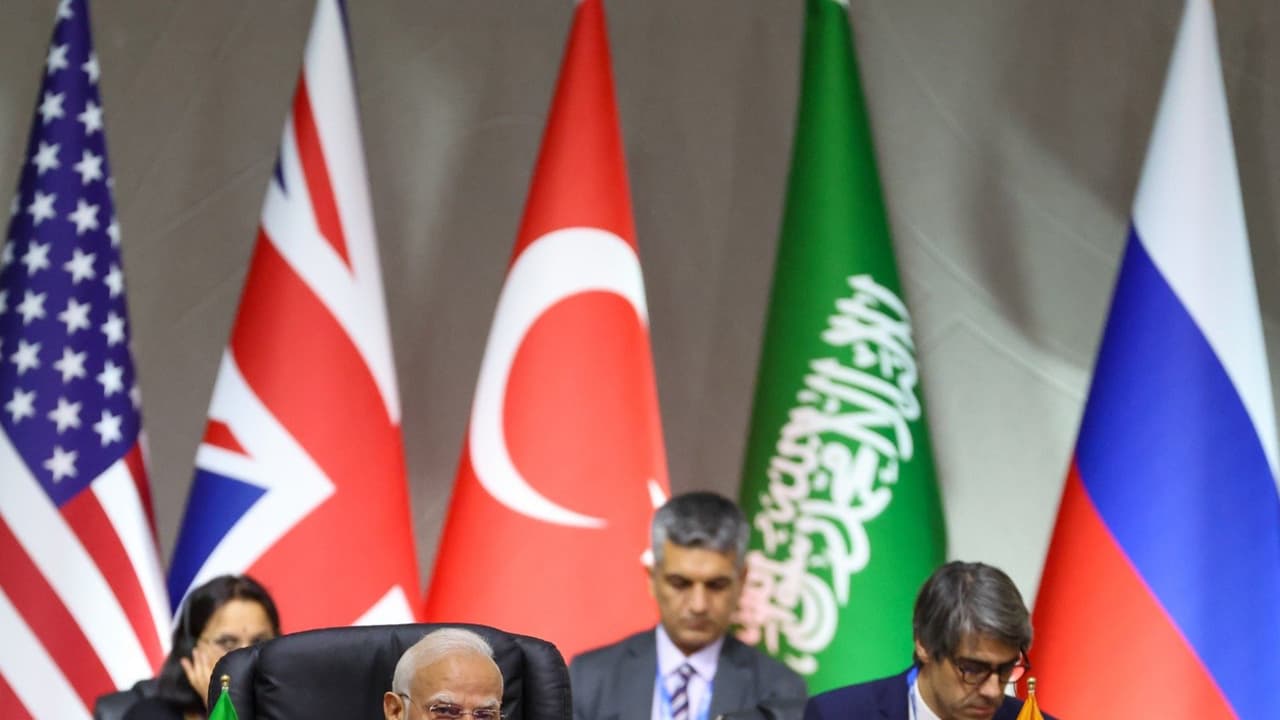At the G20 Summit, PM Modi highlighted the need for strong global cooperation to address disaster risk, climate change, and food security. He reiterated India’s commitment to a human-centric, sustainable future and a development-centric approach.
Global cooperation for a resilient world
Prime Minister Narendra Modi on Saturday (local time) emphasised that major global challenges can be effectively addressed through strong international cooperation as he spoke at the G20 Summit session on disaster risk reduction, climate change, just energy transitions and food systems.
Addressing the session titled “A Resilient World – the G20’s Contribution to Disaster Risk Reduction; Climate Change; Just Energy Transitions; Food Systems,” PM Modi reiterated that India is committed to building a future that is human-centric, sustainable and inclusive. He noted that India’s developmental approach aligns with the broader global objective of strengthening resilience against emerging risks. In a post on X, the Prime Minister said, “The second session at the G20 Summit in Johannesburg focused on building a resilient world in the face of disasters, climate change and ensuring energy transitions that are just as well as robust food systems. India has been actively working on all these fronts, building a future that is human-centric and inclusive.” https://x.com/narendramodi/status/1992271835116044429?s=20
Development-centric approach to disaster resilience
Prime Minister Modi said that when it comes to disaster resilience, the approach has to be development-centric, not only response-centric. “India believes that key global challenges can be solved with strong global cooperation. This is what made India establish the Disaster Risk Reduction Working Group during our G20 Presidency. When it comes to disaster resilience, the approach has to be development-centric, not only response-centric. Proposed the setting up of a G20 Open Satellite Data Partnership whereby satellite data and analysis from G20 space agencies can be made more accessible for countries of the Global South,” he said.
Initiatives for clean energy and food security
PM Modi also highlighted the growing impact of climate change on food security. Reaffirming India’s commitment to sustainability and clean energy, he recalled the country’s proposal for a G20 Critical Minerals Circularity Initiative aimed at promoting recycling, urban mining, second-life battery use and innovations that support clean-energy transitions. “India is fully committed to sustainability and clean energy, which is why we propose a G20 Critical Minerals Circularity Initiative to promote recycling, urban mining, second-life batteries and related innovations. One of the most adverse effects of climate change is on our agriculture sector, thus impacting food security. In this regard, it is highlighted how India is addressing these challenges through the world’s largest food security and nutrition support programme, as well as the world’s largest health insurance scheme and crop insurance scheme. India is also at the forefront of promoting Shree Anna or millets, which are nutritious,” he said.
Earlier in the day, PM Modi said global developmental parameters must be re-evaluated, especially as the African continent hosts the G20 Summit for the first time. (ANI)
(Except for the headline, this story has not been edited by Asianet Newsable English staff and is published from a syndicated feed.)
